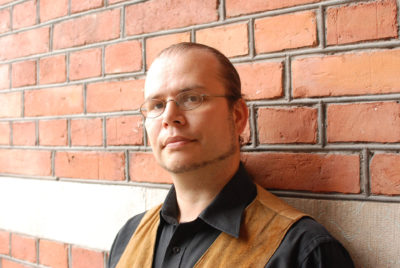
What is magic?
As is often the case, a simple question can have a very complicated answer. That is usually because the question is not as simple as it is stated. Fortunately I have an even more complicated answer. To me “magic” is something that can happen when someone makes the mistake of believing that something is simple when in reality it’s complicated or believe that something is complicated when in reality it is simple. In my work “magic” is an illusion and it’s my job to utilise people’s lack of a grasp of reality to create this illusion through different techniques. But “magic” may also be described as a part of a belief system where you can change reality by supernatural means, something I don´t believe in. It is also possible to say that a light summer rain, the laughter of children, or the blossom of a rose is “magic”. Without knowing what is implied when someone uses the word “magic” it’s difficult to say what it really is.
What is the difference between being called magician, illusionist and mentalist – and how do you call yourself?
I’m a liar and a cheat, at least that is how I present myself to an audience. Even if the three job-titles of magician, illusionist, and mentalist can sometimes mean the same thing, I will try to honestly describe the difference. A magician is to most people today a person that can fool you with sleight of hand, but the word is still also used to describe a person with real magical powers, even if they don’t exist. There is an ambiguity in “magician” that hints at the performer having some power but the magician performs the same effects as the illusionist. The word “illusionist” is more honest in that it says that the artist performs illusions. If there is a difference in usage of the words among professionals that would be that “illusionist” tends to be used for artists performing large illusions on the big stage. But otherwise, and by people in general, they are used interchangeably. A mentalist, on the other hand, doesn’t make coins appear at his fingertips or pull a rabbit out of a hat. A mentalist will mess with your mind. Some describe themselves as psychological illusionists. What we mentalists do is to use our knowledge about people to give the impression that we almost have a sixth sense rather than magical powers. What I do tends to fall in the latter category.
Why did you choose to work in this field?
It’s actually difficult for me to say. There seems to me as there are two ways that we make decisions like that. Either we consciously weigh the pros and cons before committing ourselves to a career or we just explore life and find ourselves doing something that we love, even if it might not be what we thought we would do, or planned to do. For me it’s more the second case.
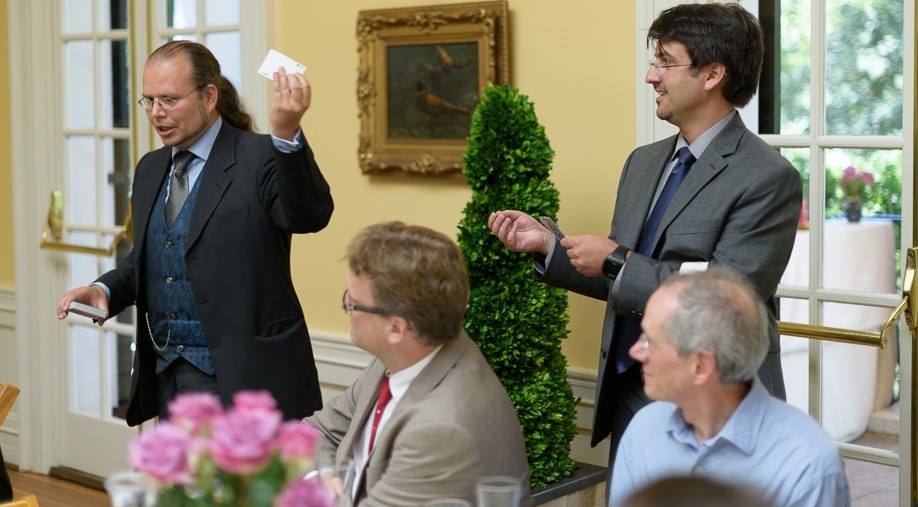
What are the challenges in this field of work?
Most jobs have plenty of challenges and perhaps being a professional liar has more than most, but I think of two challenges that perhaps people don’t know of and that are somewhat interconnected. The first challenge is to be entertaining. It might sound obvious, but many focus on the skill and the secrets when thinking about magic. Not that skill and knowledge are unimportant, but they are secondary to being entertaining. And to be clear about the terminology, I don’t use “entertaining” to mean the same as “amusing”. It is possible to scare your audience to screams and qualify as entertaining. Unfortunately some people believe that all you need to be a professional are some “tricks” bought from a magic shop and a nice web-page. The people that think so are not taking the craft seriously and neither are they taken seriously. That is the second challenge in this field of work, to be taken seriously. In the minds of most people magic isn’t an art form like painting, theatre, music or dance. Perhaps this is because of the type of performers I complained about but it is a challenge for the real artist in my field.
How can you use your knowledge on a daily basis?
I would not say that I use my knowledge every day, at least not consciously. But there are a few things that I have picked up through learning mind reading, philosophy, and science. I’m usually quite good at picking up on when people are talking BS even when they believe it themselves. I imagine that many think that the way to use my powers is to pick up women, but even if I’m a liar and a cheat I’m not immoral, I only use my knowledge for good.
How much time should someone invest for a good start as a magician?
To begin there is not much of a threshold if one starts with learning the right things. If you start at the right level with the right effect, you can perform magic in a couple of hours. That would be a good start, but you start with a very limited repertoire. And you should work at that first effect until you understand it on a deeper level. Then you move on and spend 5-10 years building your skill set to reach the level of a good amateur. A word of advice is to not assume that you know an effect just because you understand the method, there is a lot more to really knowing the ins and outs of a trick. I read plenty of interviews with the big stars of magic, both present and throughout history, and usually they answer in the single digits, when asked how many magic effects they know.
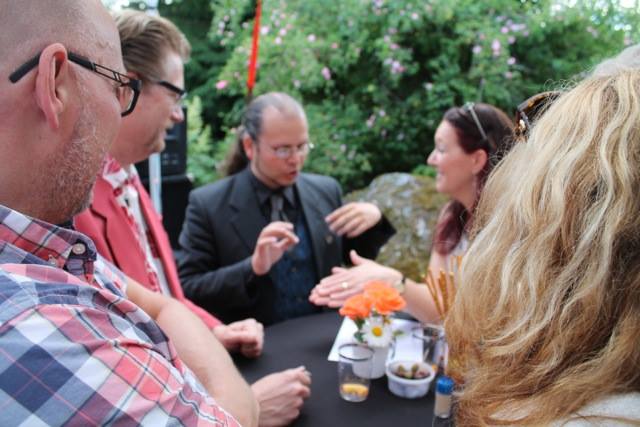
Are there courses or schools where people can learn or is it mostly self-taught work?
There is no Hogwarts as far as I’m aware, but occasionally you can find courses given to the general public. It is also quite common that someone who is serious about learning magic takes private lessons from an established performer. Traditionally it was also common for people that had shown some knowledge of magic to be accepted to a magic club where they can learn a lot more. We have to see if future magicians will use the Internet instead. But to join a magic club you need to know at least a little magic, a trip to the local library and some practice should be enough for that. Joining a magic club is a great way to not only learn more, but also meet new friends.
What is your goal?
That is a very open question, the kind of question to ask if you want someone to start telling you everything about their life. It can mean so many different things. What is my goal in a performance, for my career, in my life? When it comes to my performances my goal is to do something that is enlightening at the same time as entertaining. I want to say important things and have the mind-reading illustrate what I say rather than to say silly things just to present an effect. A personal goal might be to have something important to say, that hasn’t been said too much already.
Is there any difference between Sweden and other countries in how they see your work?
I’m not that well known that I can say anything about how people perceive my work in most other countries. But there are differences in how people regard magic and mentalism around the world. There are very few countries where you might be burned as a witch, although it still does happen. Most of the time people know the difference between magic as entertainment and whatever other kind of magic they might believe in. Mostly the stereotypes of pulling rabbits out of a hat and similar things are the same, but each country seems to have their own tradition of what magic is, usually based on the big artists in their history.
What is the most interesting thing in being an illusionist-mentalist?
I’m tempted to answer “people”, because people are interesting and I do get to meet quite a lot of them in my job, not only meet them, but also to interact with them. But one other thing that is very interesting is to come up with things, to solve problems of how to do something. And after you had an idea it is fun to polish it into something that can be performed.
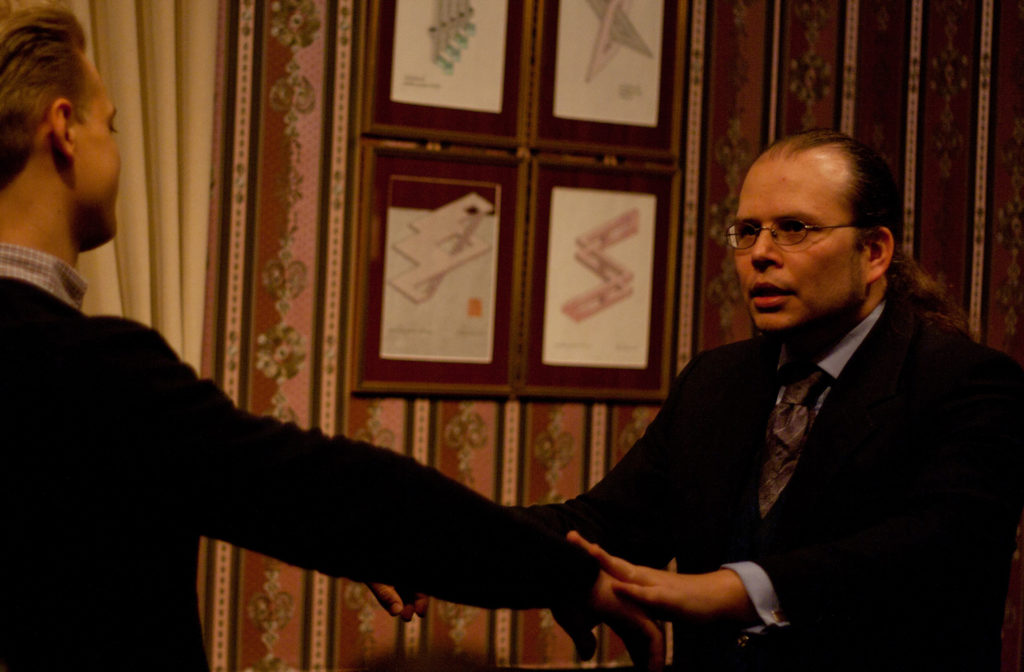
How does a magician use their free time?
Magicians tend to be self-employed so “what is free time?” is the correct answer. Since I’m more of a bohemian mind-reader, I do other things than work. In general I would say that magicians spend their free time not very differently from other people, we are more normal than people might think. I myself study a lot. The university is a big advantage of living in Uppsala and I’m putting it to good use.
Do you believe in the supernatural or is there only magic?
This question is assuming that the supernatural might be outside our limit of understanding, which might be true, but omit that there is nothing that says that what is natural must be within our ability of understanding. The Cosmos is under no obligation to make sense to us. It is also common today to too strongly connect understanding with rationality. And finally the term supernatural is strange. If we try to use it in describing something that exists, that which exist must be something in nature, it is perhaps outside of our experience, but if it is a part of the real world – it is natural. Thus if it exist it cannot be supernatural. Even if it is outside of our experience it should not be our ability to understand something that determines if it is supernatural or not.
That said, I realize that most people don’t use the word in that way. As a Christian I have to accept that I believe in something supernatural. Though I do point out that belief is not the same as knowledge so when asked I describe myself as a Christian agnostic.
Concerning “understanding” the word is of course applicable to what we can find through reason, but that is not all. Great art, and I venture to say, also spirituality, can give people the subjective sense of understanding something. There are limits to what can be expressed through rational arguments and that is why humans reach for something else. Music, paintings and film can all give the audience an understanding that passes beyond the analytical. That is at the best of times also true for magic.
Are there disadvantages in this job?
Absolutely, all jobs have them. A part from that the job includes what is to me boring tasks like book-keeping and marketing. It has one big disadvantage, there is a lack of co-workers. I, as many others, don’t work with a team as the big names in the industry do. I have nobody to have a “fika” with or to effortlessly discuss ideas with.
What are the myths in your field of work?
I think that one myth might be that people like to be fooled, I don’t think it is the fooling part that people enjoy when seeing magic. What people like is having a good time and to get confronted with something miraculous. Of course people know that they missed something on an intellectual level, but the experience is that the world is different from what they always thought and that is a perplexing and marvellous feeling. I believe that a performer with the aim to only fool people is a poor performer.
A second myth is most common with the beginners in magic, it is the myth of the perfect trick. It is a quest of many budding magicians to find the perfect effect that will make them famous. What they miss is that it is the performer that becomes famous not the trick. Also they tend to look after a trick so perfect that it is the same as being able to do real magic and that just doesn’t exist.
Is there anything you would recommend the world in general?
“What if it’s the other way around?” – that is quite a good question to ask yourself from time to time. And of course, don’t just ask the question, establish why one thing is more probable than another if it’s possible.







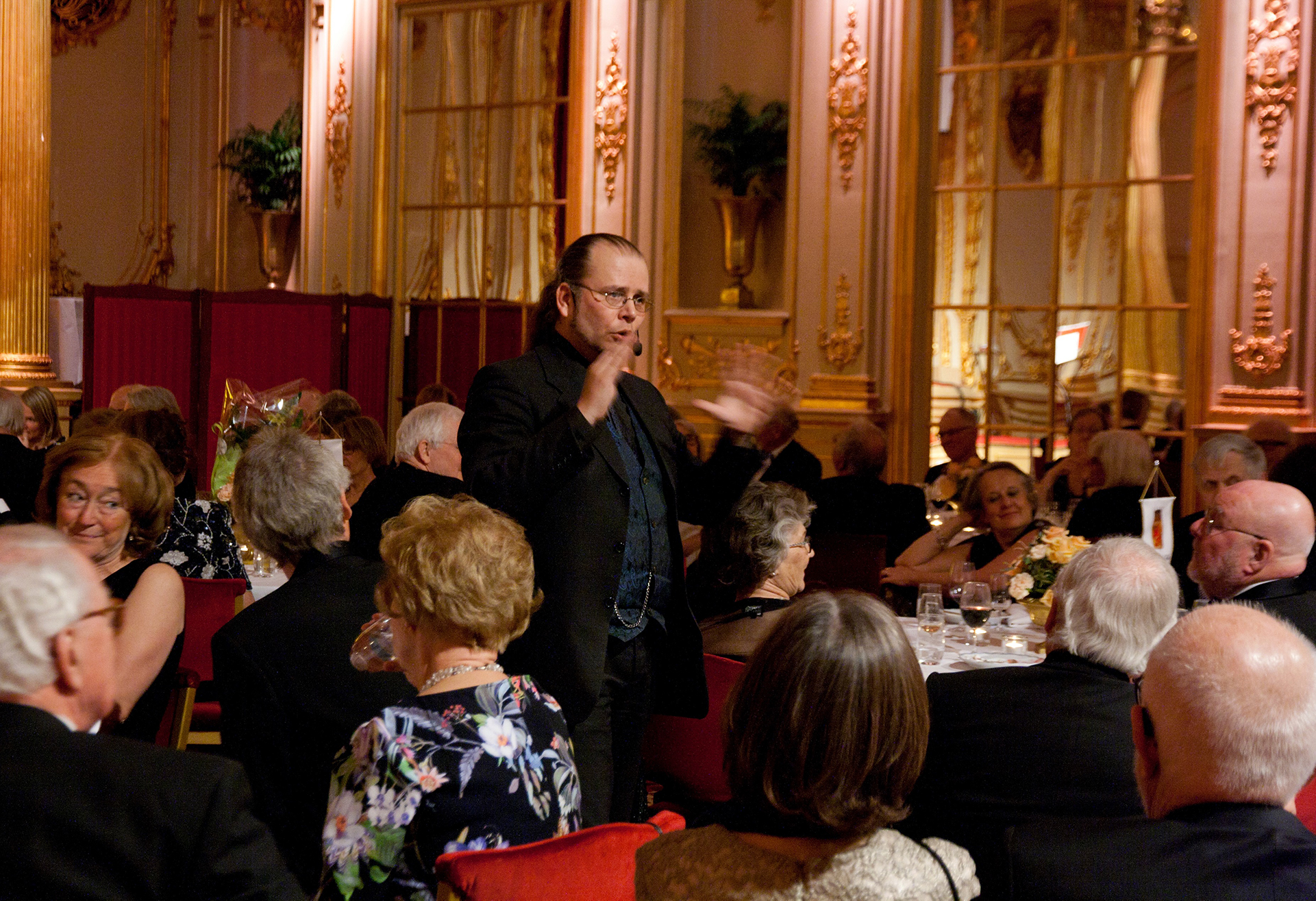




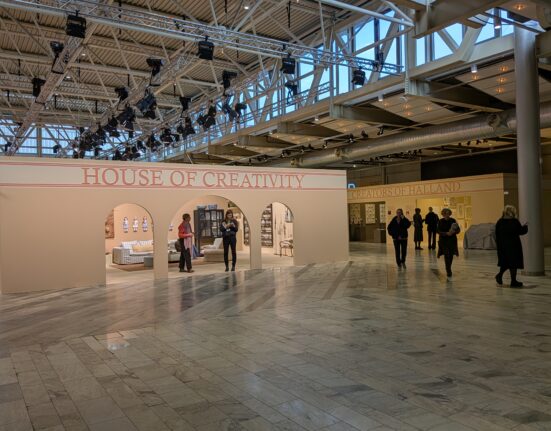
1 Comment